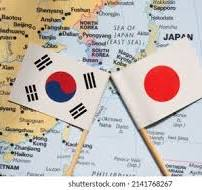A university professor gave the readers of the Peace Weekly some exciting news on the relationship between the two countries of Japan and Korea and hope for the future.
A new prime minister has been elected in Japan. Korean media outlets have focused on Prime Minister Ishiba's past remarks, such as "Even if (colonial rule) was legal, we need to recognize the fact that there was a history of annexing Korea, which was an independent country, and changing (their) surnames." They have also highlighted a book published just before he ran for prime minister that included the subtitle, "The perpetrators forget, but the victims do not."
In particular, he is said to have been unable to answer when former Singaporean Prime Minister Lee Kuan Yew asked him about Japan's occupation of his country. It is said that he learned after returning to his home country that the Japanese military had divided Singaporeans into Chinese, Malay, and Indian groups, interned them, and carried out a reign of terror. He is said to have emphasized the wounds caused by annexation, which causes a country to lose its culture and language while saying it must "face its history as the perpetrator."
Looking back on the Korea-Japan relationship with the Abe government, which failed to face its past, the emergence of the Ishiba government raises expectations for a new journey of improving Korea-Japan relations. Korea-Japan relations have been sailing smoothly since the new policy toward Japan under the Yoon Seok-yeol government. However, a Japanese journalist defined the current Korea-Japan relations as 'Japan's anxiety and Korea's dissatisfaction.'
Korea is dissatisfied with resolving past issues. Japan is anxious that Korea-Japan relations may worsen again under the next Korean government. Judging from Prime Minister Ishiba's remarks, he seems willing to present a solution to both countries' dissatisfaction and anxiety. However, the problem is complex. Above all, how the Korean government responds to the new Japanese government is essential.
It is also worth noting that Prime Minister Ishiba himself supports the policy of revising the Peace Constitution into a Normal Constitution. Japan's Peace Constitution was a decision to prevent further war after 1945. Germany, a war criminal nation in Europe, was punished through division and occupation, and its national power was weakened so that it could not wage any more war.
In Asia, Japan was not divided. Instead, Korea and Vietnam were divided and experienced fierce warfare. The Emperor of Japan never used the word "surrender" in his surrender broadcast. He announced that he was forced to stop the war he had waged for the peace and prosperity of Asia because of America's brutal weapons. The perception of the past by the Japanese far-right has not improved since then.
Former Prime Minister Abe apologized for the areas Japan occupied on the 70th anniversary of Japan's defeat but did not apologize for the places it had colonized in the past. He inherited the Emperor's 1945 Okum broadcast and the 1951 San Francisco Peace Agreement. Next year will be the 80th anniversary of liberation and the 60th anniversary of the Korea-Japan Agreement. Still, the thoughts of the Japanese far-right have not changed.
The most significant meaning of 1945 was peace and the restoration of sovereignty of a weak country. The 1965 (Korea-Japan Agreement) meant breaking away from the past and opening up a future of peace and prosperity together. I hope that the launch of the new government in Japan will be an opportunity to resolve discontent and anxiety by facing the history of being the perpetrator on the one hand and by accepting it as true reconciliation on the other hand.

No comments:
Post a Comment